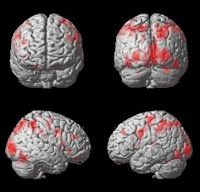
This cute and fuzzy fake seal is suppose to invoke relaxation, motivation, improvement of vital signs, and activation of communication among inpatients and caregivers for elderly and children. This is called the Paro and it is a robotic mental commitment robot. What does this mean? They have been developed to interact with human beings and to make them feel emotional attachment to the robots. It is comparable to animal therapy and the proven relaxation that comes from this method of therapy. The negative effects of animal therapy is the animal itself, and its restrictions from various locations, hospitals, clinics, etc. due to the nature of an animal (according to this website). They invented the Paro to avoid the these negative effects, while keeping the positive one's from eliminating the pet dander and bites, to keeping the softness of the animal and emotion like expressions. The robot responds to commands, stroking, sleeps, and other behavior resembling that of a seal. Dr.Takanori Shibata modeled the robot after a seal to eliminate biases of the consumers from previous experiences with household pets, also that the seal is cute and seen as friendly. This is a robot that could be used in a clinic with patients to develop interpersonal skills with their caregivers or to relax patients. The video below with the Alzheimer's patient and the Paro seems to help the patient relax, but this video could also be staged (pulling it directly off the website). It seems more like one of those pet toys one has a little child than a therapeutic tool, then again anything can be used as a therapeutic tool. This could be help in a Therapists office or even for patients to utilize at home as a coping/relaxation tool.










